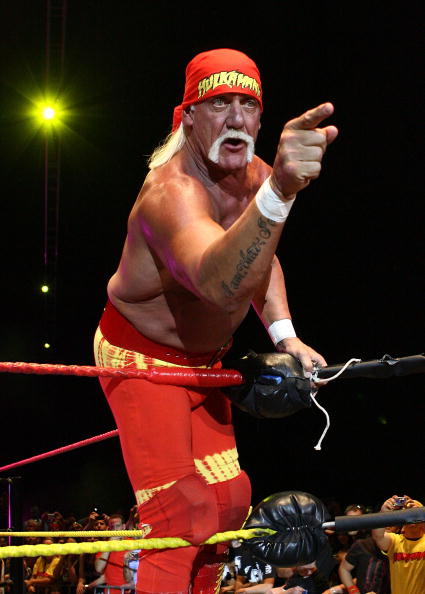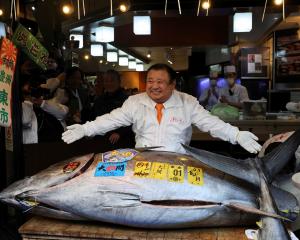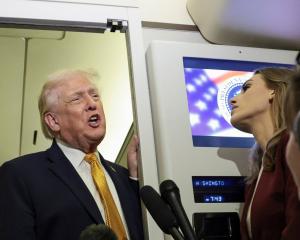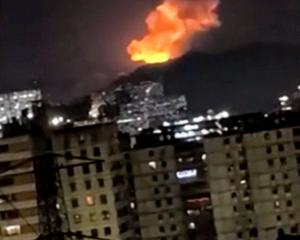
Hogan, whose real name was Terry Bollea, was perhaps the biggest star in WWE’s long history. He was the main draw for the first WrestleMania in 1985 and was a fixture for years, facing everyone from Andre The Giant and Randy Savage to The Rock and even WWE co-founder Vince McMahon.
But outside the the ring, Hogan also found trouble. WWE in 2015 cut ties with him for three years, even removing him from its Hall of Fame, after it was reported that he was recorded using racial slurs about black people. He apologised and said his words were "unacceptable".
The "Hulk" moniker came from comparisons to the comic-book hero portrayed on TV at the time: Bollea would end up paying royalties to Marvel Comics for years.
"Hogan" was the invention of wrestling promoter Vincent J. McMahon, who wanted Irish representation among his stable of stars.
Hogan won at least six WWE championships and was inducted into the Hall of Fame in 2005 and reinstated there in 2018. As its most identifiable hero, Hogan helped take the WWE from small arenas to professional sports stadiums, and was known to millions of fans worldwide.
More than a wrestling star, he was a global phenomenon. Channelling the energy he called "Hulkamania," Hogan was a flag-waving American hero with the horseshoe moustache, red and yellow gear and massive arms he called his "24-inch pythons."
Crowds were hysterical when he ripped off his T-shirt in the ring — a trademark move — revealing a tanned, sculpted body.
Hogan parlayed his wrestling fame into other endeavours, appearing in numerous movies and television shows, including a reality show about his life.
Born Terry Gene Bollea in Augusta, Georgia, the future Hulk and his family soon moved to the Tampa, Florida area.
After high school, he played bass guitar for area rock bands, but felt a pull to the red-hot wrestling scene in Florida in the 1970s.
Many of the details of his career were show business exaggerations, representative of the blurred lines between fact and fiction in wrestling.
"I had been running my mouth, telling everybody I’m going to be a wrestler, and in a small town, the word gets out," Hogan told the Tampa Bay Times in 2021.
"And so when I went down there, they were laying low for me. They exercised me till I was ready to faint."
The result: a broken leg and a subsequent warning from his dad.
"Don’t you ever let anybody hurt you again," Hogan recalled his father saying.
"So I went back four or five months later with a whole new attitude. The rest is history."
Hogan began his wrestling career behind a mask under the alias "The Super Destroyer" and bounced around various pro wrestling leagues in the South of the US for some years.
In 1979 he quit and started work on the Tampa docks, but via disputed means Hogan came to the attention of the fledgling World Wide Wrestling Federation and its promoter Vince McMahon Sen.
He was signed and assigned the role of key opponent of the behemoth French wrestler Andre The Giant, a competitor Hogan had already faced in the bush leagues. Originally framed as a villain, Hogan’s rivalry with Andre transformed him into a heroic figure.
Hogan was dropped from the McMahon stable after taking the role of Thunderlips in the movie Rocky III, and joined the American Wrestling Association in 1981. While in the AWA Hogan coined the phrase "Hulkamania", which would thereafter be his trademark.
Seeing how popular Hogan had become McMahon came calling and in 1983 enticed him back to the WWF. A year later Hogan won the first of his WWF (later WWE) titles and he became the face of the franchise.
He slammed and beat Andre The Giant at WrestleMania III in 1987, and the WWF gained momentum. His feud with the late "Macho Man" Randy Savage — perhaps his greatest rival — carried pro wrestling even further.
Hogan was a central figure in what became known as the Monday Night Wars, as the WWE and World Championship Wrestling battled for ratings supremacy.
As the most recognisable face in wrestling Hogan could command a big pay cheque, and for the next two decades he would bounce between the wrestling brands, building his own personal band in the process.
That was badly tarnished in 2012 when a sex tape of Hogan emerged (he won substantial damages in a 2016 law suit), and damaged still further by the 2015 racism scandal. A public apology, the sincerity of which was doubted by several African American wrestlers, preceded his fifth and final return to the WWE, mainly as a host.
By this time Hogan had added his celebrity to politics. At the 2024 Republican National Convention, he merged classic WWE manoeuvres with Donald Trump’s rhetoric to passionately endorse him for president.
"Let Trumpamania run wild brother! Let Trumpamania rule again! Let Trumpamania make America great again!" Hogan shouted into the raucous crowd.
He ripped off a T-shirt emblazoned with a picture of himself on a motorcycle to reveal a bright red Trump-Vance campaign shirt underneath. Trump stood to applaud the move.
Hulk Hogan died on July 24 aged 71.











